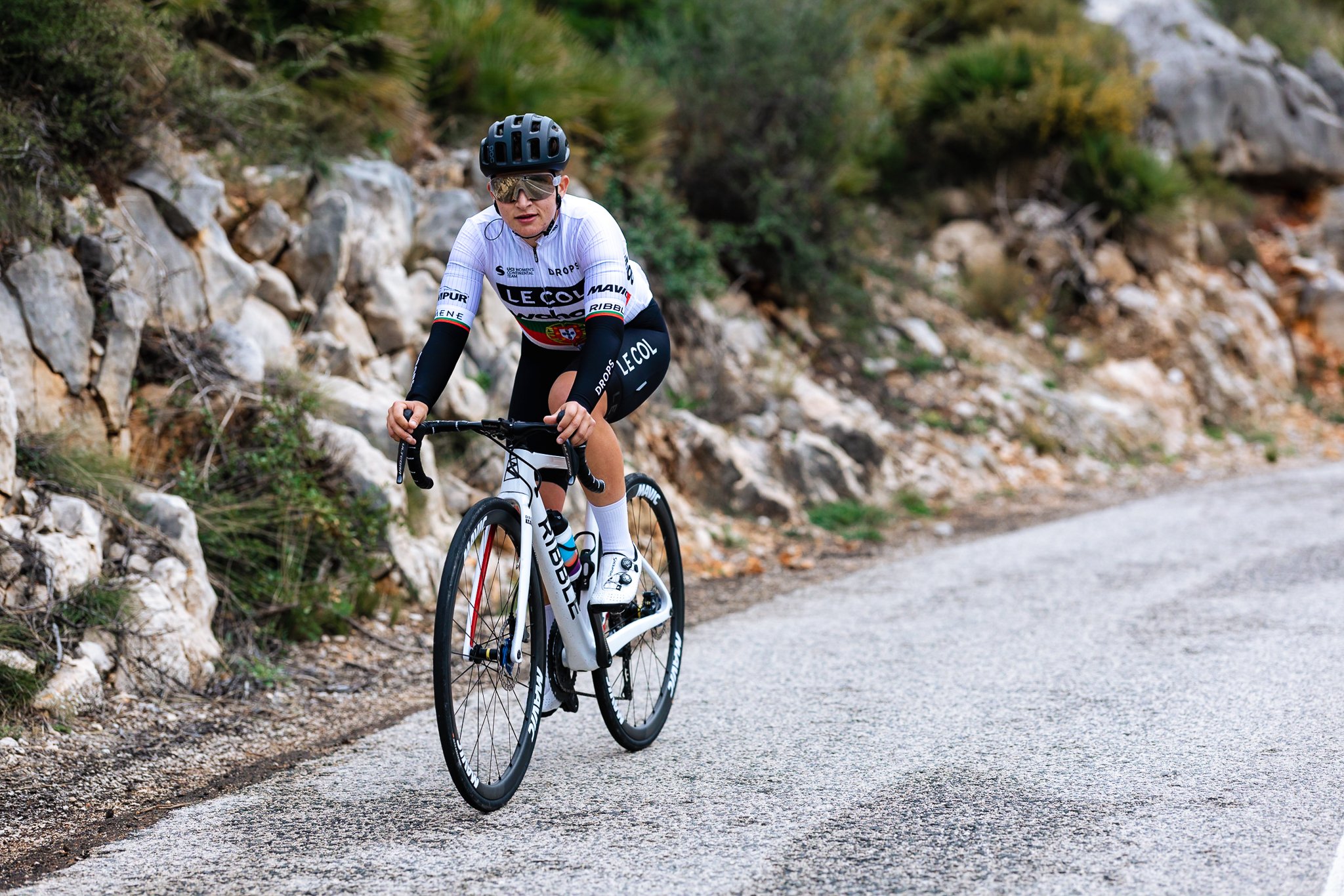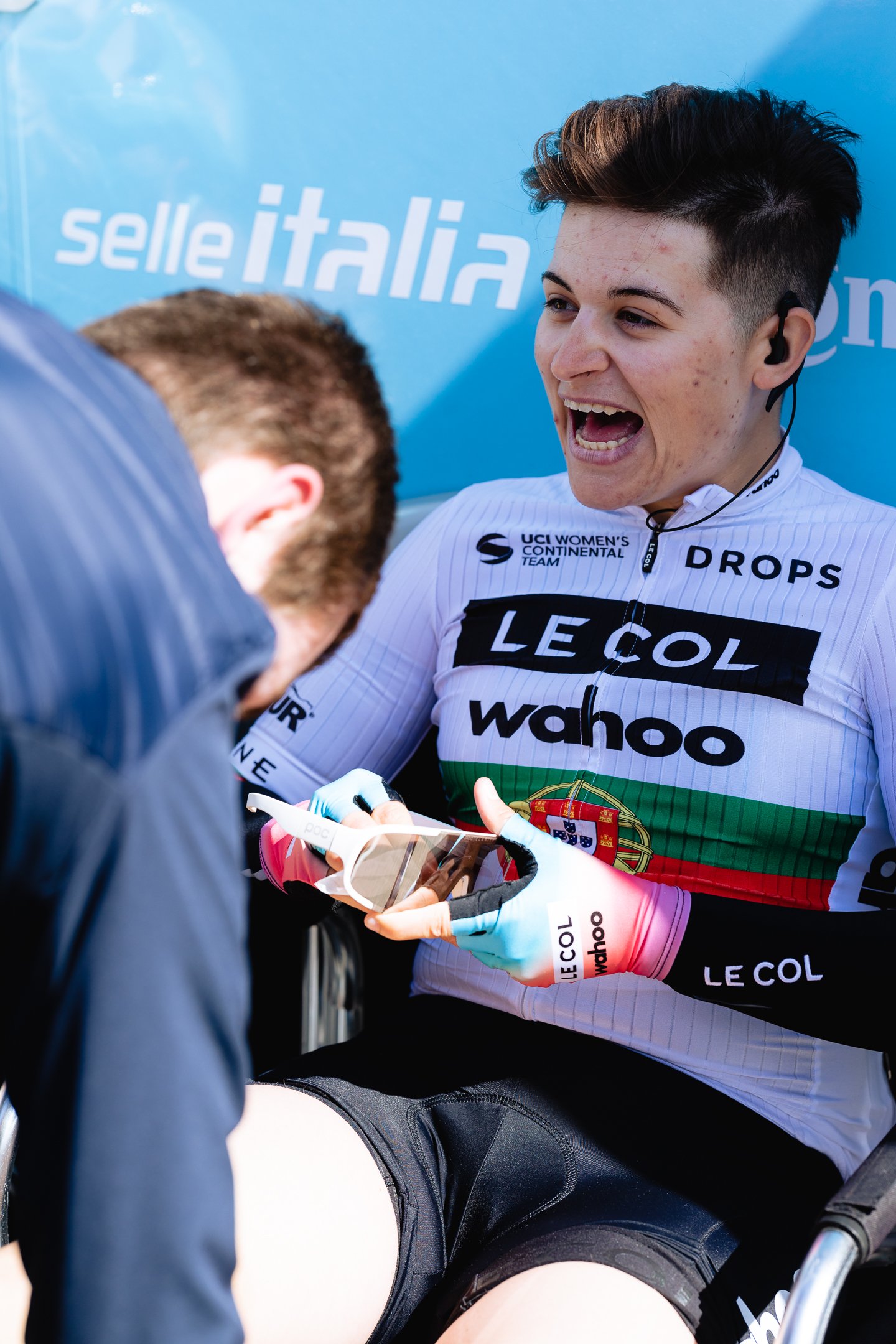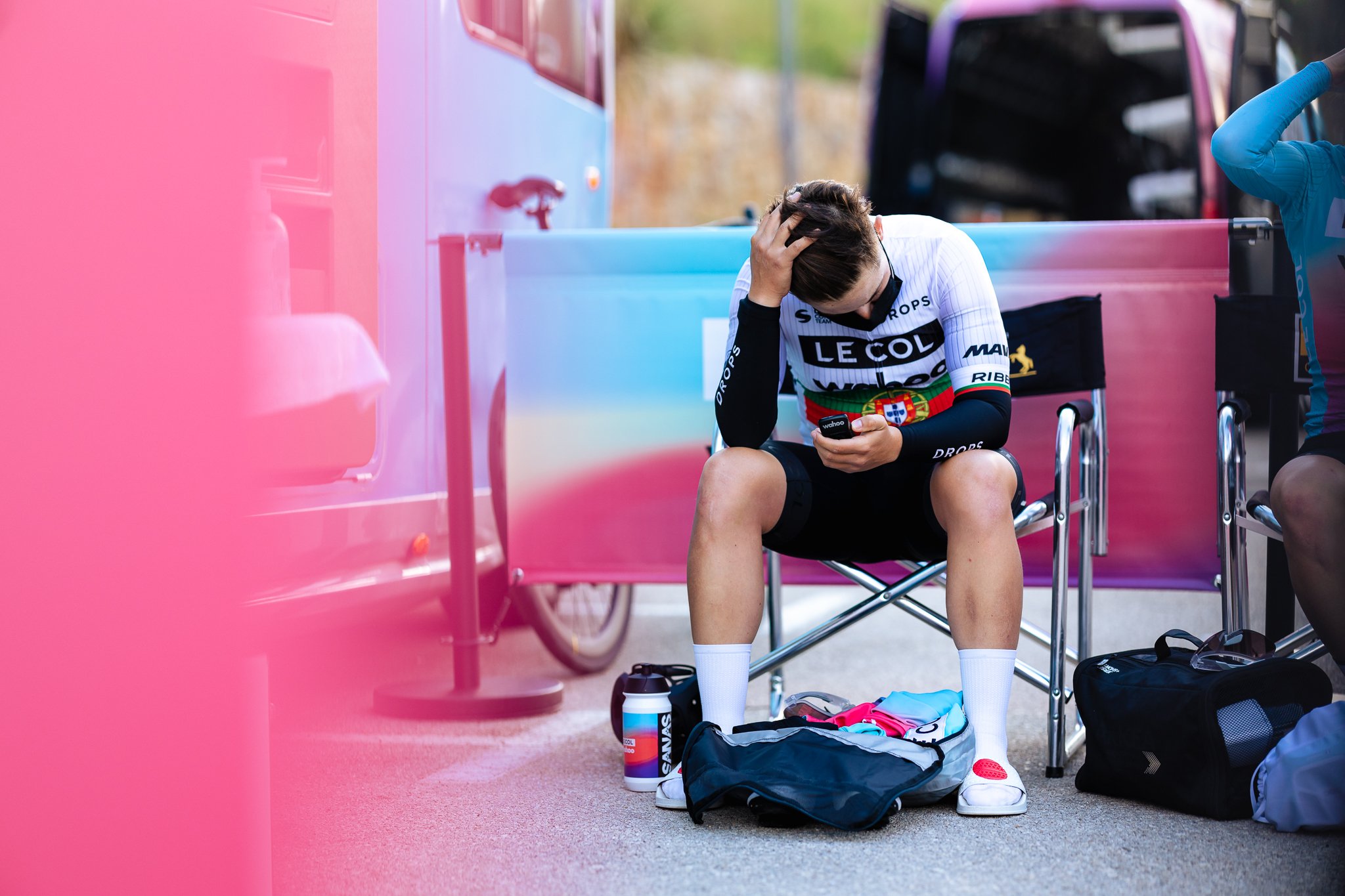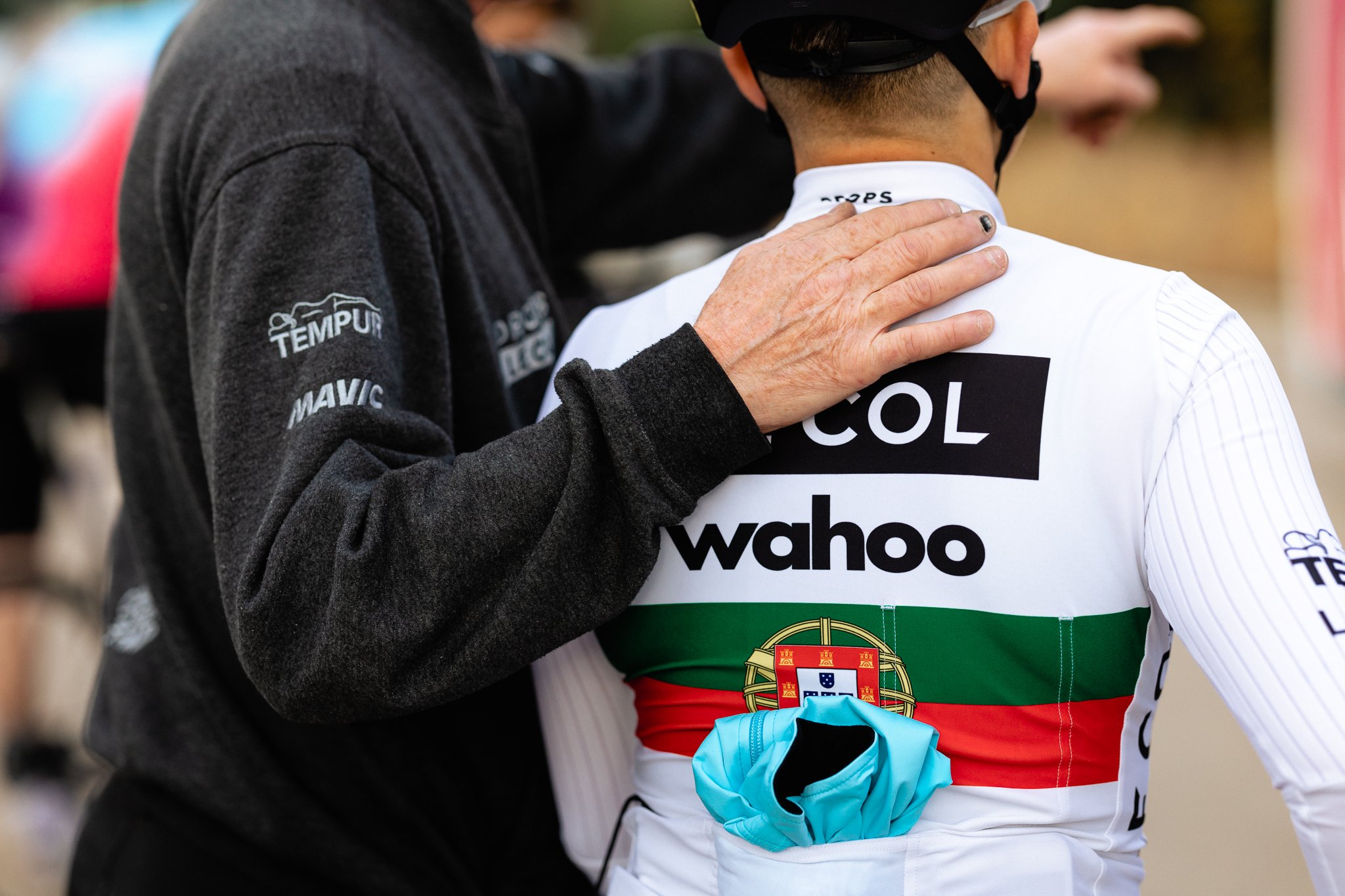THE MINIMALIST, TATA MARTINS
WORDS: REBECCA BLAND
IMAGES: HONOR ELLIOTT
Living a minimalist lifestyle can take many forms. From buying less and being less materialistic, to clearing your mind and focusing only on what matters, or helping others by giving away things that you no longer need.
For a professional cyclist, it could mean materially being able to pack fewer things in their suitcase to take on the road with them. However, emotionally and mentally, it can mean so much more. Letting things go that no longer serve you. It’s a mantra you often hear in yoga practices, ‘breathe out and let something go’, but to do it off the proverbial mat, and let it enrich other parts of your life is something that can positively impact your entire reality.
The ability to clear your mind and think only about the race, the interval, the hill repeat, blocking out irrelevant brain noise is a skill that every successful racing cyclist thrives on, and something that our own Tata Martins recognises.
“In a sport like cycling, you have to be mentally strong enough to keep going. There are more upsets than positives, so you have to keep going through the bad times. I think it is important to keep going and trust the process, as being patient is key in sport, and in life. Progress doesn’t come the next day, the next month, it takes some time so it’s a privilege to have this kind of thing in our life. We learn from it.
“In general, minimalism has had a big and positive impact on my life, but it also affected my cycling life. Now I can travel lighter with only the things I really need, which is helpful."
“Nowadays everyone needs to be a bit more minimalist and reflect on what really matters and is useful for us and what is not. ”
With riders often away from home for weeks on end, travelling light can be difficult, but by starting small you can begin to see what is needed and what can be left outside your suitcase.
“I'm far from being a proper minimalist, but I'm proud to be better than I was before. To be honest, nowadays everyone needs to be a bit more minimalist and reflect on what really matters and is useful for us and what is not.
“It's not easy, it's a hard process, but when you start doing it and working on it, you start feeling better in yourself. In my case, I gave a lot of things I didn't use anymore (despite liking them a lot) to institutions and people who need them."
For Tata, embracing minimalism is part of her quest to be a 'better person'. As a professional cyclist, it's hard not to get entirely wrapped up in the sport, with it being your sole focus from waking to sleeping. Adopting it as a part of her life has enabled her to not take things as seriously as she once did, and to trust in the process of racing and training.
Cycling is a demanding sport, with rare success, so it would be easy to lose yourself completely if you hit a bad patch in the ebbs and flows, the ups and downs. However, by organising and clearing her mind, Tata can prepare herself to be the best athlete she can be.
“My mom always said to me, 'A tidy house is an organised mind!’ So first organise your house and your stuff if you want to have a healthy and organised head. I think it must come from ourselves to find our purpose but it's important to start with small things first.
“Then, I think knowing exactly what is really meaningful and essential for us is the most important and hard on minimalism. I'm still improving it every day of my life and I'm grateful to have found that book in the store, so I always bring it with me!"
Minimalism doesn't have to be a preachy, anti-consumerist movement. Instead, it can enable you to be more mindful of where both your money and energy are going. This is especially important for athletes, who need to be able to focus on their goals, their training, and their races without distraction, and minimalism can help to play a small role in their development on and off the bike.





